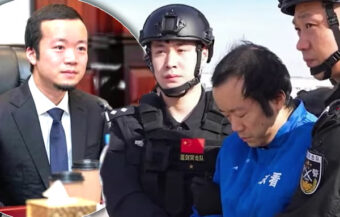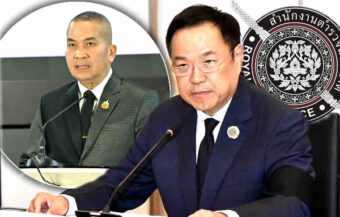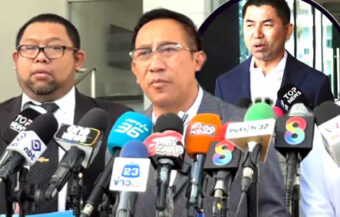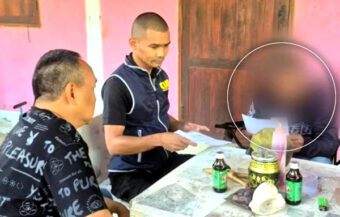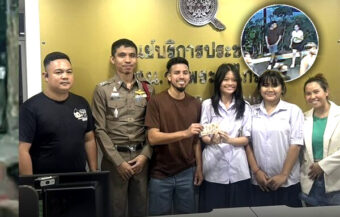Thai PM Paetongtarn rejects ICJ involvement in border dispute with Cambodia, insisting on direct talks. Cambodia pushes for Hague court. Rising tensions near Chong Bok spark military tensions, risking a dangerous stalemate as June border talks approach.
Thai Prime Minister Paetongtarn Shinawatra on Thursday made clear that Thailand would not accept the involvement of the International Court of Justice in The Hague in its dispute with Cambodia over border flashpoints. Instead, the Thai government emphasized continued engagement with Cambodia through the Joint Border Commission (JBC). This is now set to meet on June 14th, hosted by Cambodia. The agenda will include all outstanding border issues between the two countries. However, Bangkok faces limited room for compromise. The issue is politically sensitive and closely monitored by arch-conservatives in Thailand. Meanwhile, Cambodia appears determined to pursue the international legal route. Some reports suggest it will refuse to discuss the specific areas where tensions with Thailand have recently flared. There is growing concern that this impasse could deteriorate into a dangerous stalemate.
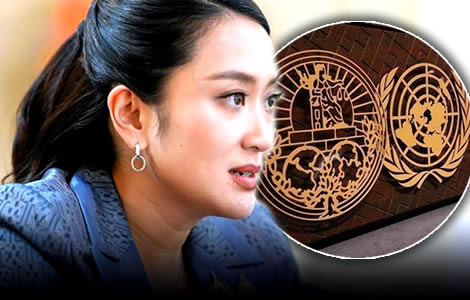
Prime Minister Paetongtarn Shinawatra on Thursday ruled out any Thai involvement in any case brought by Cambodia to the International Court of Justice. She made the announcement after meeting with Foreign Affairs Minister Maris Sangiampongsa.
The two had discussed rising tensions near the Thai-Cambodian border. Cambodia on Monday said it would certainly take such an action. Paetongtarn dismissed this, saying Thailand would handle the issue bilaterally.
She stressed that Thailand has not accepted ICJ jurisdiction since 1960. That position, she said, would not change. Instead, she reaffirmed that disputes with Cambodia will be settled through direct talks. “We will not allow outsiders to interfere,” she added.
Thailand and Cambodia plan joint border commission meeting with experienced delegations and priorities
Thailand and Cambodia have long had overlapping claims in sensitive border areas. Yet despite the friction, both sides maintain formal channels. The Prime Minister confirmed that Thailand will attend the Joint Border Commission (JBC) meeting on June 14. Cambodia will host the talks.
Importantly, Thailand’s delegation will be led by Prasarn Prasarnvinitchai, a seasoned diplomat and former ambassador. He has decades of experience with border negotiations. Officials say Prasarn will be backed by technical experts and legal staff.
Foreign Ministry spokesman Nikorndej Plangoon laid out the government’s plan on Wednesday. He emphasized three priorities from a June 5 strategy meeting. First, Thailand will fully use the JBC, General Border Committee (GBC), and Regional Border Committee (RBC). Second, all discussions must proceed in good faith. Third, both countries must reduce tensions to protect communities along the border.
“These mechanisms are time-tested,” Nikorndej said. “They’ve been used for over 26 years and have brought results.” He added that the Foreign Ministry acts as the JBC secretariat. This ensures consistent coordination and legal backing.
Officials deny media reports of landmines and Cambodian boycott, affirm all disputed areas on the table
Although tensions have risen, Nikorndej warned the media against exaggeration. Some outlets claimed landmines had been planted along the frontier. Others reported that Cambodia was skipping the JBC meeting. “Both are false,” he said. “Cambodia will host the meeting. Both sides are still committed to dialogue.”
He also addressed claims that Cambodia refused to discuss four key areas, including the Bok Channel. Thailand, he said, will bring all disputed zones to the table. These include Chong Bok, Koh Kood, the Bok Channel and an area near Surin province.
Thailand will base its claims on treaties, satellite maps, and the 2000 Thailand-Cambodia Memorandum of Understanding. Nikorndej emphasized that all evidence must be verified and legally sound. “This is not about politics,” he said. “It’s about facts, history, and mutual respect.”
Notably, the Cambodian government insists it may bring the dispute to the ICJ. However, the court cannot proceed without Thailand’s consent. Nikorndej made clear that such consent will not be given. “We prefer to talk directly, not litigate,” he said.
Indonesia denies mediation offer as flashpoint at Chong Bok triggers protests and stepped-up military patrols
Meanwhile, Indonesia was rumoured to have offered mediation. But Nikorndej denied any official proposal. “There’s been no formal approach,” he said. “Third-party mediation is unnecessary at this stage.”
The flashpoint at Chong Bok in Ubon Ratchathani has triggered serious concern. Thai officials say Cambodian soldiers entered the disputed zone in late May. Thailand has lodged four formal protests. Yet both sides have agreed not to treat it as an invasion.
“This is a contested area, not an occupied one,” Nikorndej explained. “It’s governed by Article 5 of the JBC agreement.” Therefore, the issue must be investigated jointly. Thai and Cambodian teams will inspect the site together.
While the government is pushing for diplomacy, the military remains on alert. Thai border troops have increased patrols. Surveillance has been stepped up, especially around Koh Kood in Trat province. The Royal Thai Navy is also monitoring the waters closely.
Cambodia recently held naval drills in the area. Thai officials viewed the exercises as a show of force. Nonetheless, both countries have kept border crossings open. Trade and travel continue.
Thailand urges peace and unity while firmly rejecting ICJ jurisdiction and external interference in the matter
Despite the tension, Thailand wants to avoid confrontation. “We do not want escalation,” said Nikorndej. “We want peace and development.”
Importantly, Prime Minister Paetongtarn issued a formal statement on June 5. She confirmed Thailand’s longstanding rejection of ICJ jurisdiction. She also called for unity and calm.
“I’ve spoken with the Foreign Minister and Deputy Prime Minister Phumtham,” she said. “We must stick to our principles.”
Phumtham had just returned from the border. His visit to Ubon Ratchathani came after the Chong Bok incident on May 28. Thai and Cambodian commanders met the next day. Both sides agreed to avoid provocation and to rely on established mechanisms.
Thailand’s position remains that all talks must stay within the bilateral framework. No external party will be allowed to interfere. “We will not internationalize the issue,” the Prime Minister wrote. “We will defend our sovereignty through peaceful means.”
There is also pressure from within. The Paetongtarn government must show resolve. Any perception of weakness could spark domestic backlash. At the same time, she must maintain harmony with Thailand’s powerful military establishment.
Previous talks brought infrastructure projects, but political tensions could disrupt progress on June 14
So far, the JBC has delivered results. Two major infrastructure projects have emerged from earlier talks. The first was the Thai-Cambodian Friendship Bridge linking Aranyaprathet and Poipet. The second connected Chanthaburi’s Ban Pakkat with Cambodia’s Ban Pram.
These examples show that bilateral dialogue can yield progress. Officials are hoping the June 14 meeting will do the same.
Still, the political climate remains tense. Cambodia’s recent rhetoric has alarmed Thai lawmakers. Some are urging the government to issue stronger warnings. Others want Thailand to deploy more troops near the disputed zones.
Yet, Nikorndej continues to stress restraint. “The goal is peace, not provocation,” he said. “We want solutions, not standoffs.”
The situation now hinges on the upcoming JBC session. Both governments must come prepared. If the talks fail, pressure will build quickly. But if handled well, the meeting could reset the tone.
Thailand insists on peaceful negotiation on sovereignty with no outside help amid rising border tensions
Thailand will insist on reviewing all disputed areas. It will rely on maps, treaties, and technical evidence. Cambodia may push back. Even so, Thai officials say the process must move forward.
For now, Thailand stands firm. It will not go to court and it will not accept outside help. In addition, it will not compromise on sovereignty. But it will keep the door open to peaceful, direct negotiation—on Thai terms.
Hun Manet confirms Cambodia ultimately may decide to send border dispute with Thailand to the Hague
Rome calls for a wider and more decisive response to Cambodia’s antics on the border after latest clash
Khmer soldier killed in deadly gunfire between Thai and Cambodian armies near Ubon Ratchathani
Of course, that may well be the problem. Cambodia, for its part, is reportedly saying that the border areas near Chong Bok, where the May 28th incident happened, cannot be discussed with Thai officials. The country’s Senate, supported by President and strongman Hun Sen, has vowed to refer to the International Court of Justice.
Therefore, it appears that an inevitable stalemate is developing. In turn, this spells danger.
Join the Thai News forum, follow Thai Examiner on Facebook here
Receive all our stories as they come out on Telegram here
Follow Thai Examiner here
Further reading:
Hun Manet confirms Cambodia ultimately may decide to send border dispute with Thailand to the Hague
Khmer soldier killed in deadly gunfire between Thai and Cambodian armies near Ubon Ratchathani
Thaksin to address state board on drug suppression despite howls of protest from human rights groups
Health Minister Somsak launches regulatory blitz to outlaw non-medical cannabis use within 40 days













